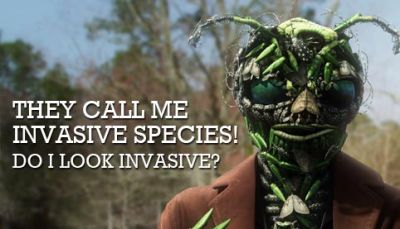 The 2017 Illinois First Detector Workshop on invasive plants, diseases, and insects will be offered at eight Illinois sites in 2017. In its fifth year, the workshop is being offered through University of Illinois Extension and coordinated in conjunction with the Illinois Natural History Survey’s Cooperative Agricultural Pest Survey (CAPS); the Illinois Department of Agriculture; the Morton Arboretum. The one-day course teaches participants how to report potential invasive threats. Topics this year include invasive plants and human health, oak tree diseases, and emerging invasive forest insects.
The 2017 Illinois First Detector Workshop on invasive plants, diseases, and insects will be offered at eight Illinois sites in 2017. In its fifth year, the workshop is being offered through University of Illinois Extension and coordinated in conjunction with the Illinois Natural History Survey’s Cooperative Agricultural Pest Survey (CAPS); the Illinois Department of Agriculture; the Morton Arboretum. The one-day course teaches participants how to report potential invasive threats. Topics this year include invasive plants and human health, oak tree diseases, and emerging invasive forest insects.
The $40 registration fee includes instruction, on-site lunch, and training materials. A student rate of $25 is offered. Continuing Education Units (CEU’s) are also available. The workshop runs from 9:00 a.m. to 4:00 p.m. Register online for the Sterling location at go.illinois.edu/firstdetector.
The program focuses on current and new invasive pests, but also provides updates on previously covered topics, according to Kelly Estes, CAPS Coordinator. The popular hands-on portion of the workshop allows participants to examine invasive species samples in detail and learn identification techniques, that will help them to distinguish these invasive pests in the field. Workshop participants take the knowledge they acquire to their own communities.
Dates, Illinois locations, and contact information include:
Thursday, February 9 – Bloomington; Kelly Allsup (309-663-8306)
Friday, February 10 – Sterling; Bruce Black (815-632-3611)
Tuesday, February 14 – Lisle; Sarah Navrotski (630-955-1123)
Wednesday, February 15 – Orland Park; Margaret Burns-Westmeyer (708-679-6894)
Wednesday, February 22 – Pekin; Jason Haupt or Christine Belless (309-547-3711)
Thursday, February 23 – Taylorville; Andrew Holsinger (217-532-3941)
“This program increases the eyes and ears in the field,” Estes said. “The threat of invasive species is large, and we can’t get to every corner of the State. Having many people take an interest in learning more about invasive species and how to report them is fantastic!”
In four years, 900 people have taken the workshop, and an estimated 108,000 additional people have become more aware of invasive species indirectly, through the dissemination of information by the workshop participants.
